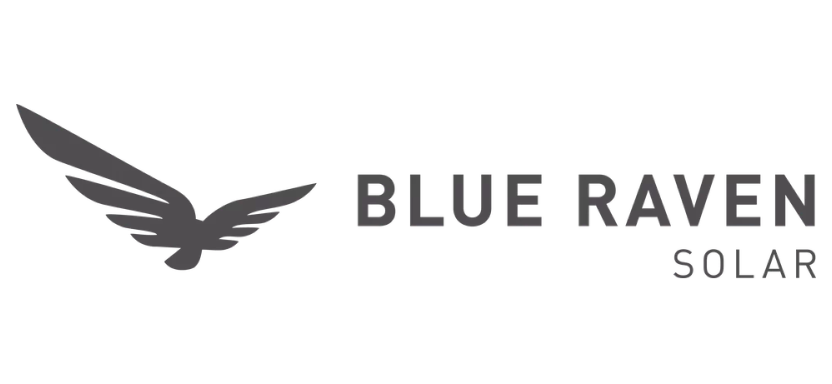Best Solar Companies of 2024
Some or all of the mortgage lenders featured on our site are advertising partners of NerdWallet, but this does not influence our evaluations, lender star ratings or the order in which lenders are listed on the page. Our opinions are our own. Here is a list of our partners.
The best solar panel installers make transitioning to solar easy by offering high-efficiency solar panels, strong warranty coverage and favorable financing terms. We looked for companies with strong customer satisfaction ratings and long track records, focusing on those with the largest market share and search volume (as a proxy for consumer interest).
Our analysis covers roughly 30% of residential solar installer market share in the U.S. in 2023, based on analysis from the research firm Wood Mackenzie. Although we focused on the largest players, the solar industry is highly fragmented and there are many excellent local options not included on this list. As you decide on a solar panel installer, it’s smart to include these smaller providers in your search, too.
Blue Raven Solar: Best customer satisfaction
Freedom Solar Power: Best full-service option
Palmetto: Best financing options
Sunrun: Best leasing options
Other companies we looked at
Bright Planet Solar: Bright Planet Solar gets very low marks for customer satisfaction. It also doesn’t disclose financing terms or warranty terms. It serves eight states: California, Utah, Illinois, New Jersey, Connecticut, Rhode Island, Massachusetts and New Hampshire.
Freedom Forever: Freedom Forever was the second-largest solar installer by market share in 2023, according to a report from research firm Wood Mackenzie. But it falls short on warranty coverage and customer satisfaction, and it doesn’t disclose financing terms. It operates in Puerto Rico and 33 states: Arizona, Arkansas, California, Colorado, Connecticut, Delaware, Florida, Georgia, Idaho, Illinois, Maine, Maryland, Massachusetts, Missouri, Montana, Nevada, New Hampshire, New Jersey, New Mexico, New York, North Carolina, Ohio, Oklahoma, Oregon, Pennsylvania, Rhode Island, South Carolina, Texas, Utah, Vermont, Virginia, Washington and Wisconsin.
Momentum Solar: Momentum Solar offers services in 12 states: Arizona, California, Connecticut, Florida, Georgia, Massachusetts, Nevada, New Jersey, New York, Pennsylvania, Texas, and Rhode Island. It offers excellent warranty coverage but earns low marks in customer satisfaction and doesn’t disclose financing terms.
SunPower: SunPower, our former top pick, announced in April 2024 that it would wind down its residential solar business, and that SunPower customers would be transitioned to Blue Raven Solar (which it acquired in 2021), partner installers and SunPower-certified dealers. Because of this change, we no longer list it as a top choice on this list. But we do recognize Blue Raven Solar, its subsidiary, for excellent customer satisfaction ratings.
Tesla: Tesla manufactures and installs solar roofs, solar panels and Powerwalls, which are compact battery systems. These products have sleek designs and good functionality, but Tesla gets low marks for customer support. It doesn’t disclose on its website how many states it operates in, and it didn't respond to NerdWallet’s inquiries.
Titan Solar Power: Titan Solar Power offers service in 21 states: Arizona, California, Colorado, Florida, Georgia, Idaho, Illinois, Louisiana, Maryland, Missouri, Mississippi, North Carolina, New Jersey, New Mexico, Nevada, Ohio, South Carolina, Tennessee, Texas, Utah, Virginia. It has excellent warranty terms but gets low customer satisfaction ratings.
Trinity Solar: Trinity Solar, the fourth-largest solar installer by market share in 2023 according to Wood Mackenzie, gets low customer satisfaction ratings. Also, its warranties fall short of what competitors offer. It offers service in 10 states: Connecticut, Delaware, Florida, Maryland, Massachusetts, New Hampshire, New Jersey, New York, Pennsylvania, and Rhode Island.
How much do solar panels cost?
In 2024, an 11kW system costs about $22,000 after federal tax credits, according to data from EnergySage, a solar and home energy product comparison marketplace founded in 2012. Before incentives, the average cost per watt is about $2.86, the company found.
To be sure, solar costs vary widely depending on your electricity use, equipment and state incentives. Here are some factors that can affect the total cost:
Size of home and electricity use: Installers will look at past electricity usage and roof size to determine how many panels to install. If your electricity usage is high — say, because you have a large house or live in a place with extreme weather and often rely on heating or cooling — installers will recommend putting in more panels, which will cost more.
Equipment: Installers offer various brands of solar panels and solar inverters. The best solar panels have high efficiency ratings — meaning they can more effectively convert solar energy into electricity — but they can also be more expensive. SunPower Maxeon panels, for example, have an efficiency rating of 22.8%, which is the highest efficiency rating among 28 competitors, according to analysis from the consumer review site SolarReviews; but SunPower Maxeon panels are also some of the most expensive solar panels, according to data from solar marketplace and research firm EnergySage. Your costs can also go up if you purchase a solar battery with your system. Batteries aren’t necessary for a system to function, but they can be useful as a backup energy source.
Roofing: If you have an old roof, it might make sense to replace your roof before adding solar panels. Roof replacements can run north of $30,000 for single-family homes.
State incentives: In addition to federal tax credits, some states offer state tax credits and other incentives for going solar. Some also have net metering laws, which allow solar panel owners to sell unused electricity to utility companies.
What to look for in a solar company
Reliability is the most important factor to consider when looking for a solar installer. You could be dealing with an installer for the next 25 years or however long your panels last. If the panels malfunction, you’ll call the installer. If a part needs to be replaced, you’ll call the installer. If the panels need to be serviced, you’ll call the installer. You don’t want to be dogged by lackluster warranties and poor customer service.
Here are some things to look for:
At least 10 years in business. Although a long track record doesn’t guarantee a business will be around for the next 25 years, it can indicate the company has more financial stability than more recent entrants and is better positioned financially to withstand any headwinds.
Responsiveness to repair requests. We measure responsiveness based on company statements outlining how soon the company responds to service requests. However, service can vary widely by region. Read reviews of the companies you’re screening to see if there are recurring complaints of long wait times for service requests.
At least 25 years of warranty coverage. Look for a workmanship warranty and a manufacturer’s warranty that are 25 years long. The workmanship warranty should cover roof leak damage caused by solar panel installation. Warranties aren’t all-inclusive — exclusions apply, and certain events can void them — but they can be a good way to financially protect yourself in the case of a badly installed system or faulty equipment.
High customer satisfaction ratings. We took the average customer rating from three sources: the Better Business Bureau, ConsumerAffairs (a consumer review site) and SolarReviews (a consumer review site focused on solar companies). When assessing companies on your own, read reviews and note concerning patterns — say, complaints about responsiveness or shoddy workmanship.
Efficient, high-quality equipment. Different solar panels have different efficiency ratings, which measure how well they convert sunlight into electricity. If you’re looking for a specific brand, make sure you choose a company that’s qualified to install it. You can do this by going to the solar panel manufacturer’s website and selecting a certified installer.
Solar tax credits and incentives
Federal solar tax credit
The U.S. government offers a federal solar tax credit of up to 30% of the cost of your solar energy system for your home. This means, for example, if you spent $30,000 for a system placed into service in 2024, you may qualify for a tax credit of up to $9,000.
The credit is nonrefundable, meaning that if you don’t owe any taxes, you won’t get a check for $9,000. But you can carry the unused portion of the credit forward and potentially reduce your tax liability in future years.
To qualify for this tax credit, you must own the system, either by buying it outright or financing it with a loan. You can’t claim the credit if you’re leasing a system. The size of the credit depends on which year your system was put into service.
System in service | Credit amount |
|---|---|
2017-2019. | 30%. |
2020-2021. | 26%. |
2022-2032. | 30%. |
2033. | 26%. |
2034. | 22%. |
State tax incentives
On top of the federal solar tax credit, many states also have solar tax incentives, utility rebate programs and other money-saving programs. You can go to the Database of State Incentives for Renewables & Efficiency, operated by the North Carolina Clean Energy Technology Center at North Carolina State University, to find out which programs are available in your city and state.
It’s also a good idea to talk to your solar panel installer about potential incentives and rebates before you get started on your project. They can guide you through the process of claiming rebates and other incentives for new installations.
Methodology
NerdWallet's Home Services team evaluated home warranties across several factors, including financing terms, responsiveness to repair requests, customer satisfaction, number of years in the solar business, pricing transparency, warranty coverage, customer service accessibility and state-level availability. Because costs can vary by location, it's best to get quotes from multiple companies before making a decision. Read more about how NerdWallet rates solar panel installers.





